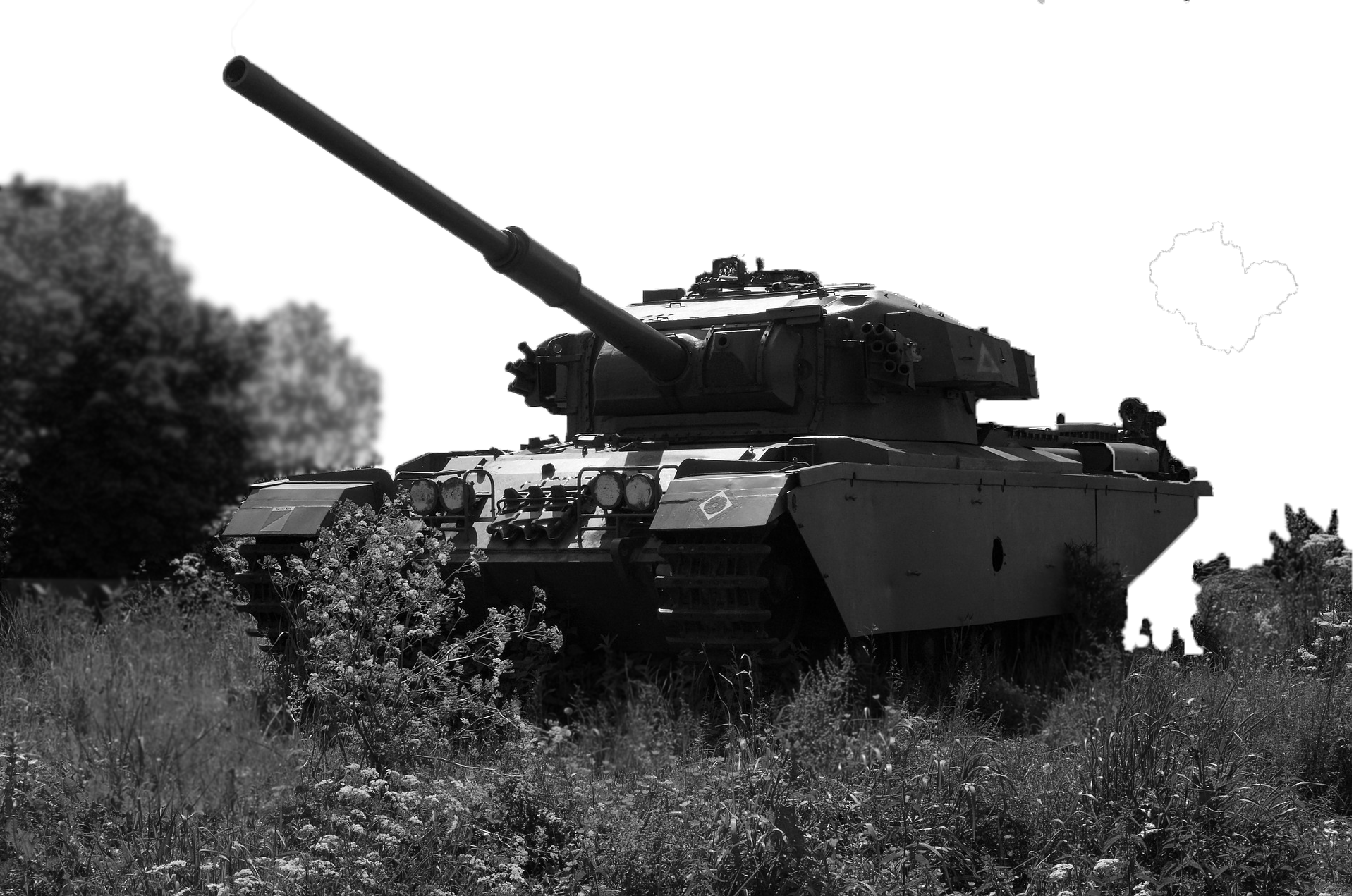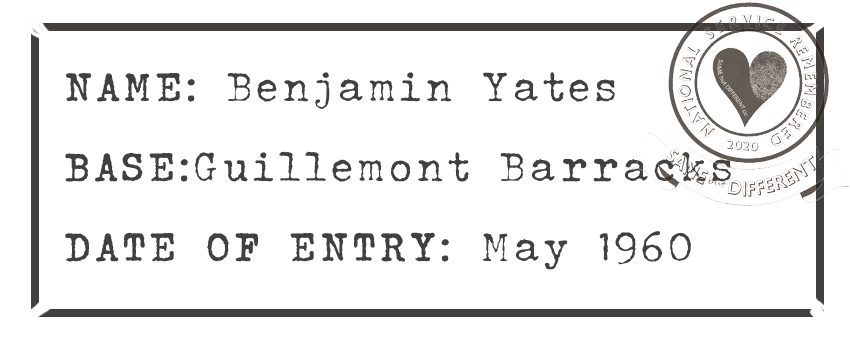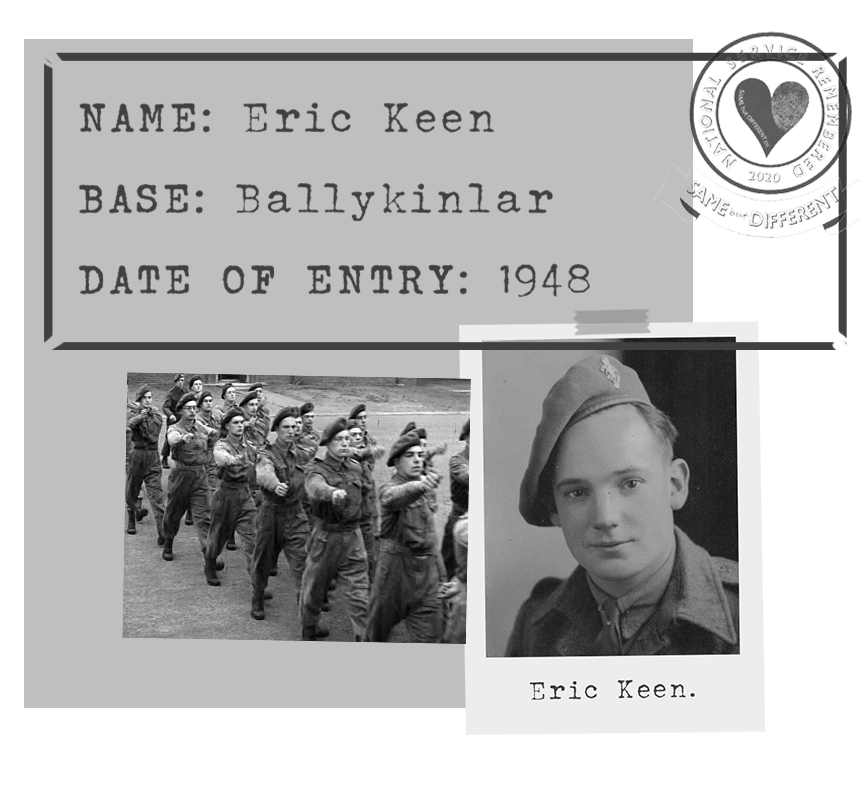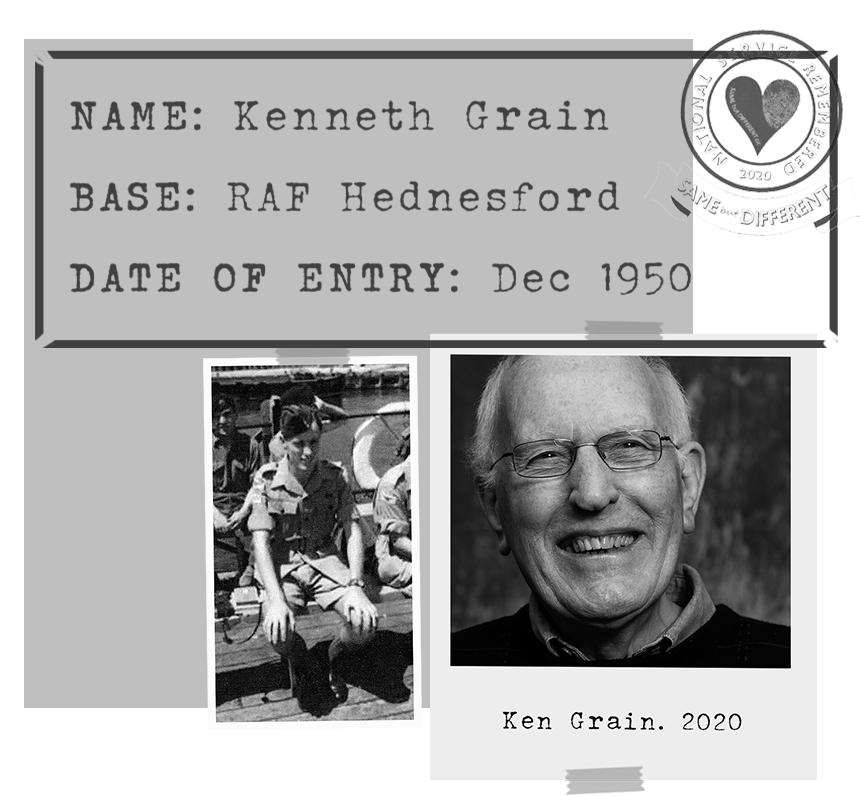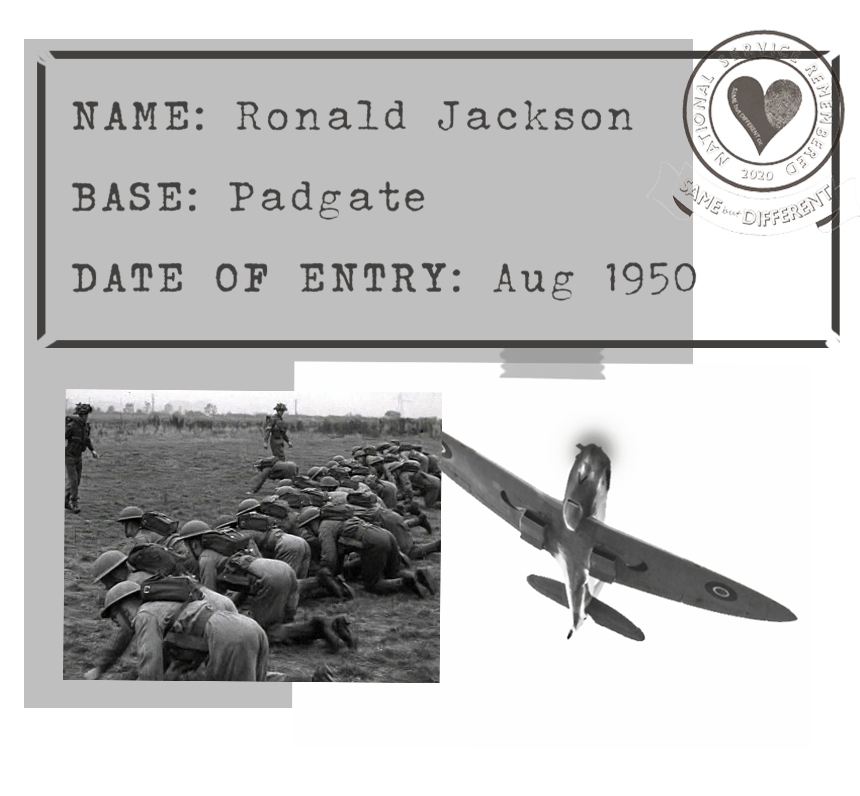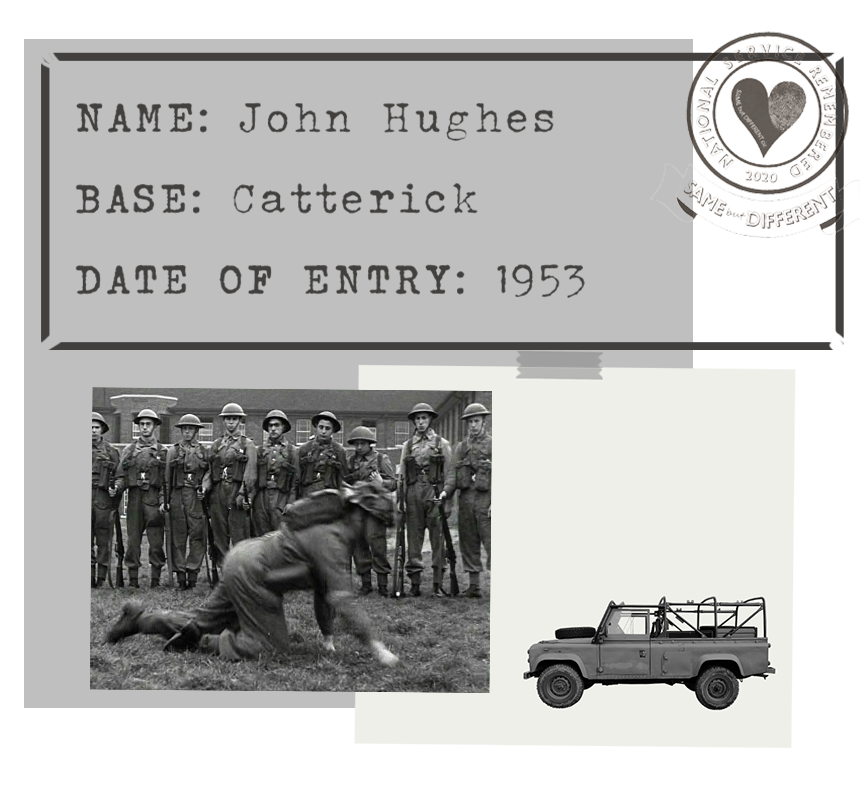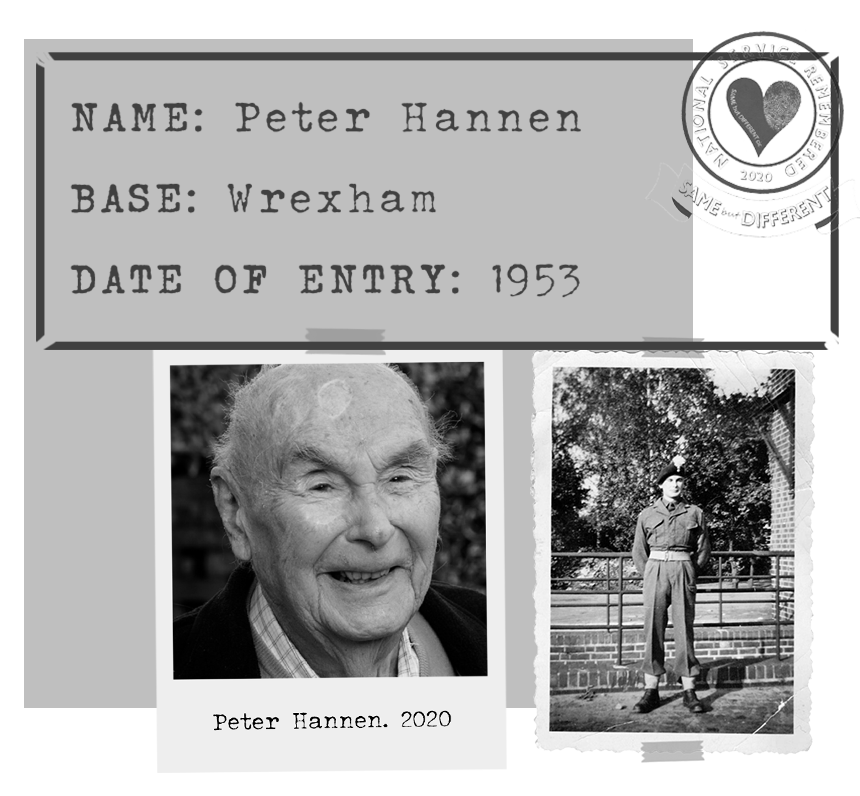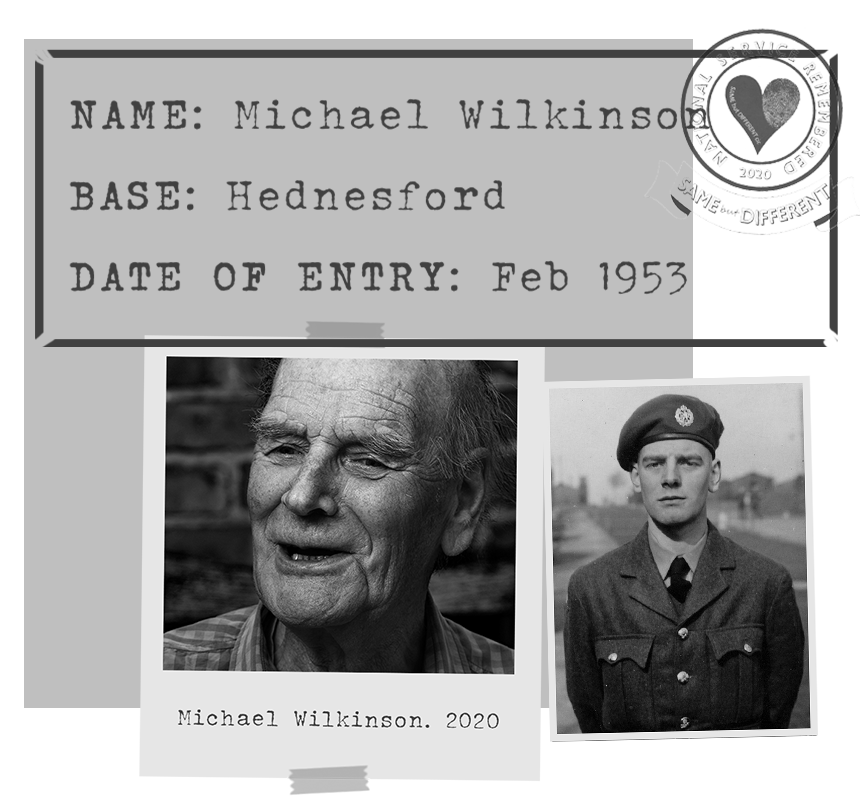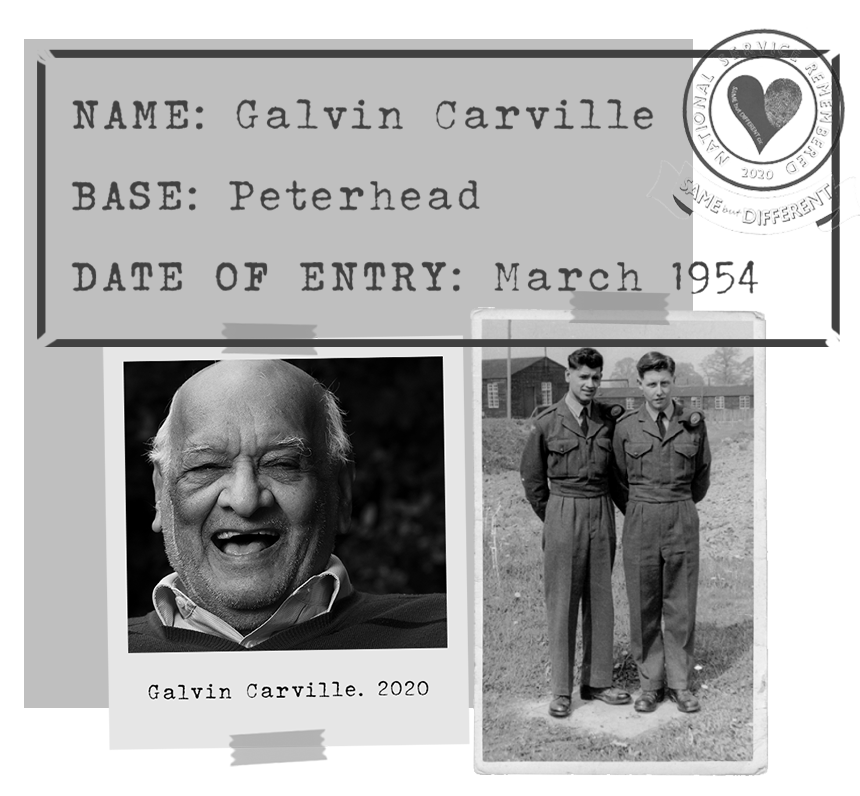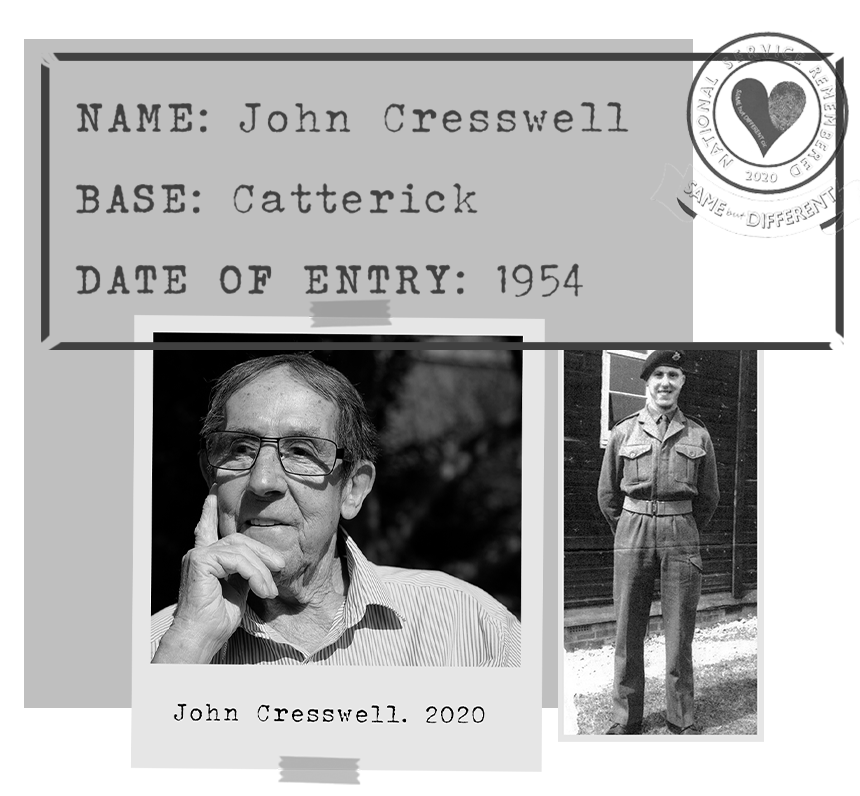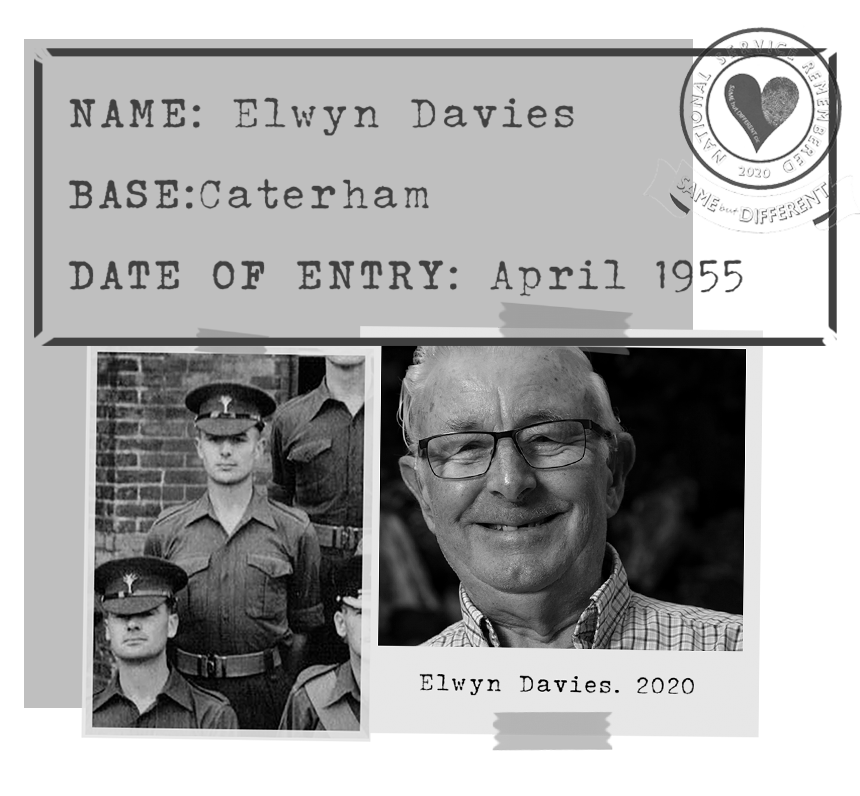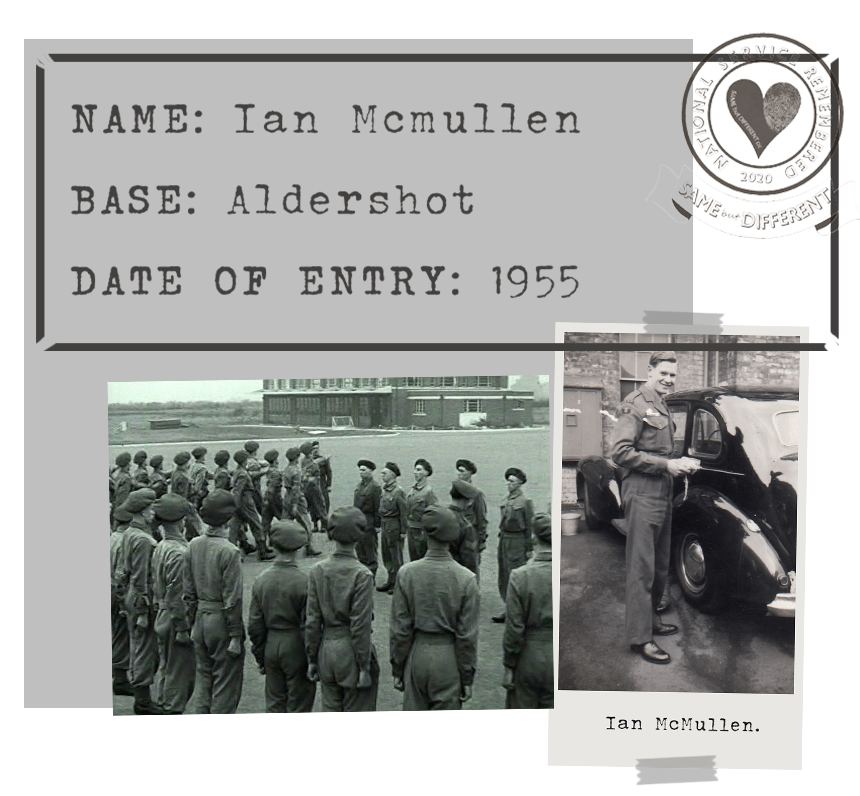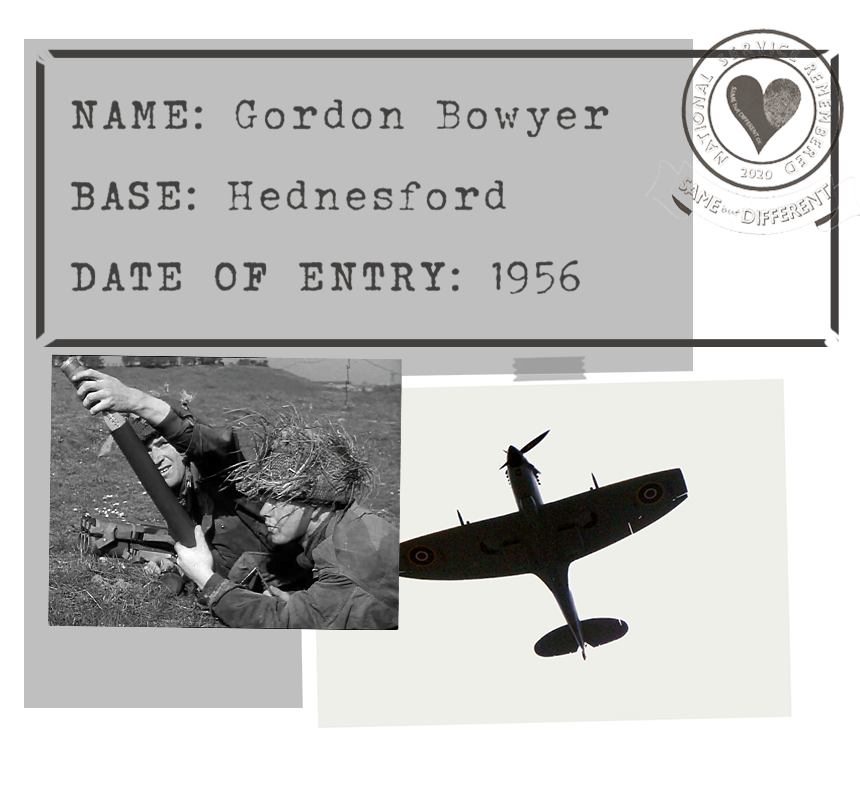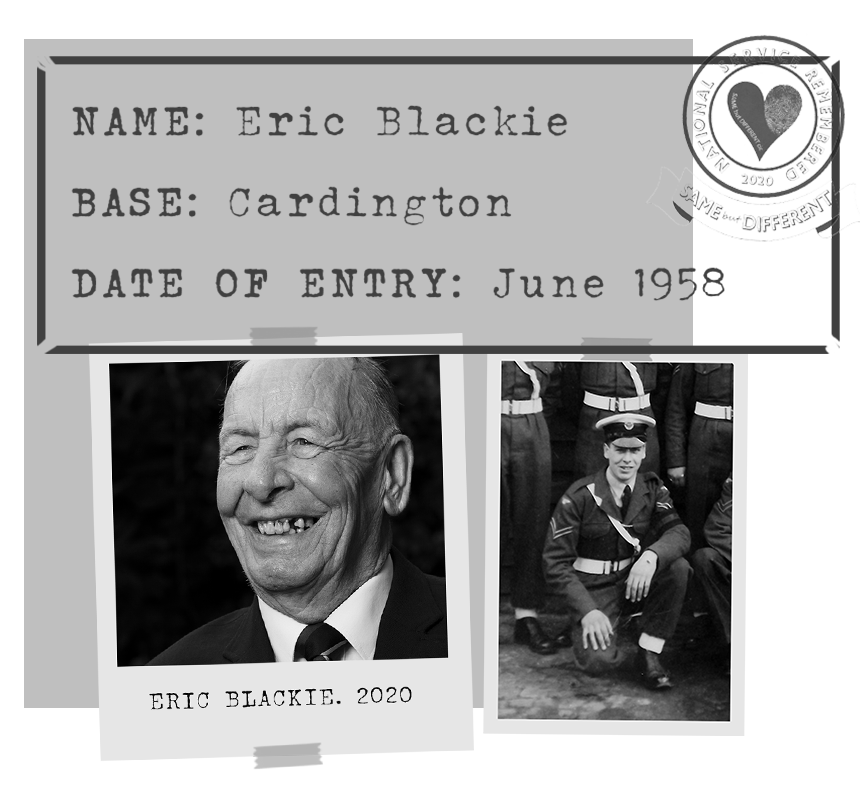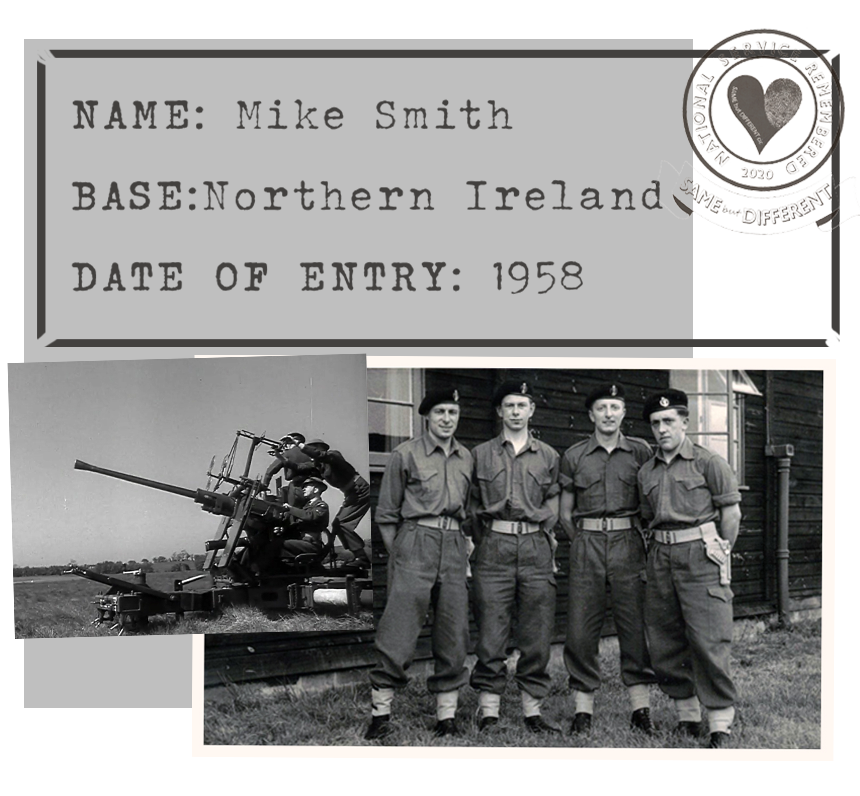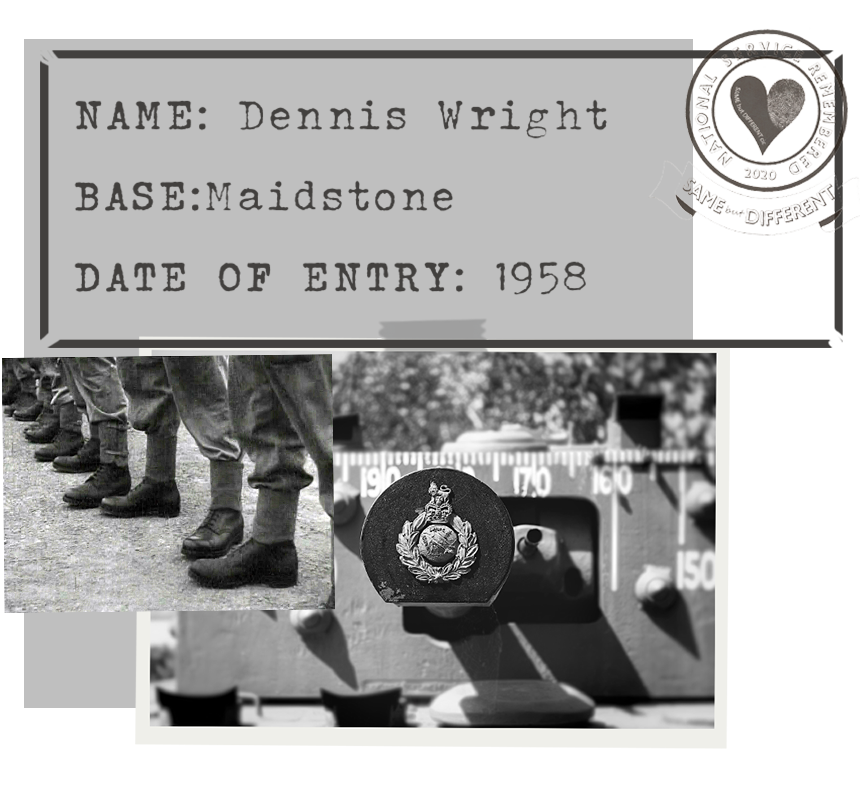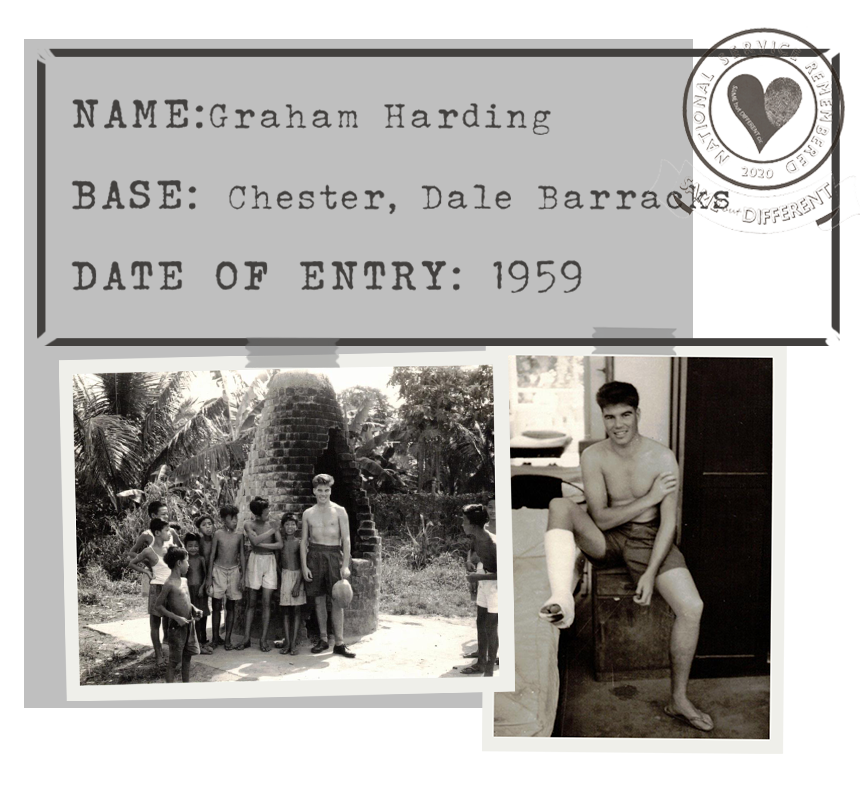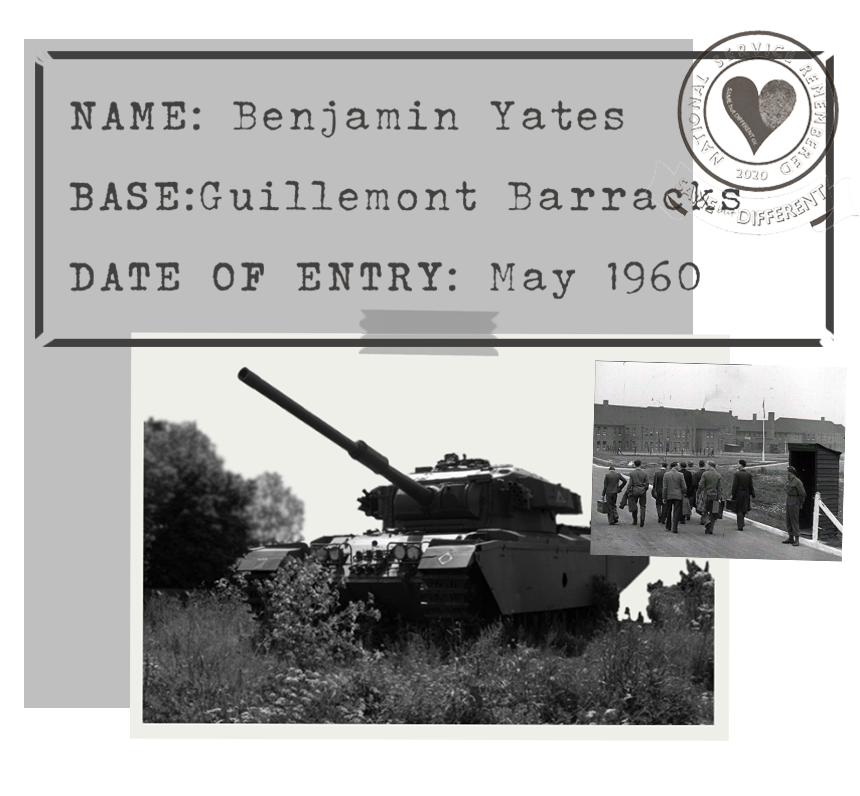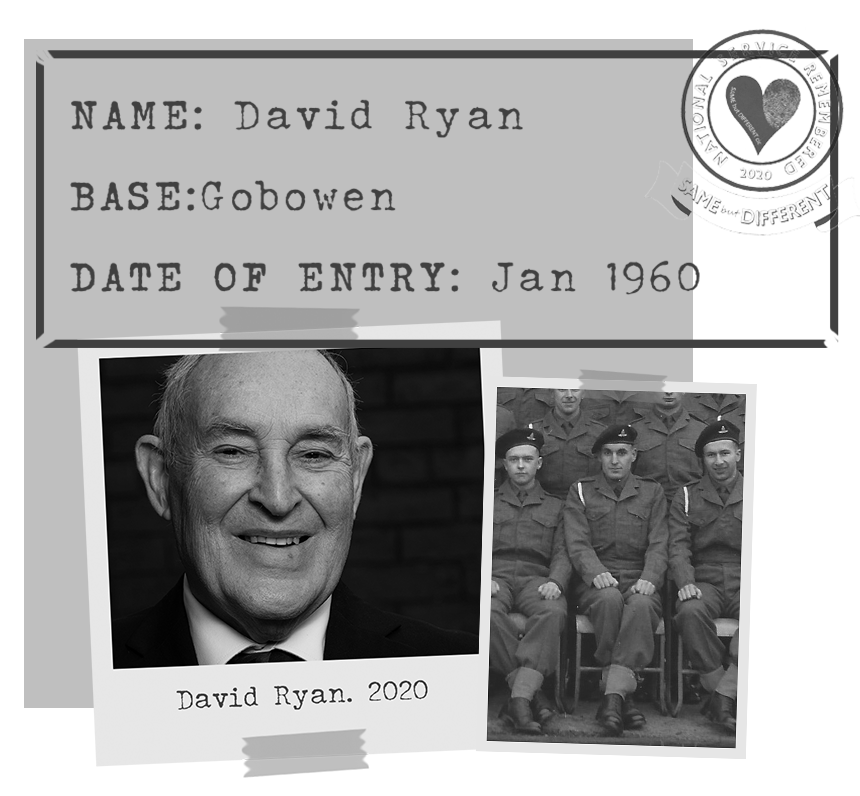“Once a soldier - always a soldier.”
I went in on the 19th May 1960.
I would have been coming up to 22 years of age. Everybody knew that if they passed a medical they would have to do National Service unless they went into the Merchant Navy.
Nobody is happy to leave home, with a rifle, not knowing what it was all about but that’s what basically an army, or an RAF, or a Navy person is, to defend his country. I went to Number 3 training regiment, Royal Engineers, Guillemont Barracks, Cove, Hampshire. I was there for approximately 6 weeks for my basic training.
It was something I’d never experienced in my life before. Living with my mother and father and two sisters, to go and live in a room with 20 men and I think there was about 110 new recruits on that day. I live in Lancashire so I had to catch a train down to London, from London down to somewhere possibly around Reading, that I’d never done in my life before.
It’s part of growing up in life. I left school at 15 and started to serve an apprenticeship in engineering and I’d never done that before but the people I was learning my apprenticeship with were people who lived around me. These people in the army, they came from Scotland, Northern Ireland, Devon, Cornwall, everywhere. I’d never met them in my life before. I suppose it was a thing of not knowing, you were numb, you couldn’t say much. But we all got on, we were all in the same boat.
I had been in the cubs and scouts before and had camped out, made little fires and cooked things like sausages, and in basic training, more or less everything is done for you. You’re given all your uniforms, which were good quality and you were provided with all your meals. You just had to look after yourself, keep yourself clean, clean your shoes (like they don’t do today) and clean your teeth.
“These people in the army, they came from Scotland, Northern Ireland, Devon, Cornwall, everywhere. I’d never met them in my life before. I suppose it was a thing of not knowing, you were numb, you couldn’t say much. But we all got on, we were all in the same boat.”
You were inspected most mornings after you’d had your breakfast and made sure you had a haircut (anything under the beret was yours, anything out of it wasn’t and you got told to have it cut). It was a part of growing up, called discipline, something we’re short of today. So basically, it was new but I enjoyed it.
When I look back, 60 years ago, it was a foundation of life. After basic training I was moved to Kent, 36 Corp Engineering Regiment in Invicta Lines, Maidstone, Kent. All the boys there had just been on Christmas Island where they tested the atom bomb. I had to do all kinds of things - I worked in the officers’ mess in the bar at night, I was a batman looking after officers’ shoes and belts, cleaning them, and then I was offered a driving job. I could drive before I went into the army so I decided I’d like that job as it would get me out of the camp. When I was out of the camp, I was my own boss. I stayed there until I was de-mobbed, mainly a driver.
I was driving what you would class today as a 4 x 4 land rover, called Austin champs.
I was out most days, sometimes taking officers up to London to the war office for a meeting and back, taking people to hospital and back and I got to go to Dartmoor with junior leaders. I went to France with a group in the French alps, which I thoroughly enjoyed, went up to Aviemore in Scotland with a skiing trip and to Germany on a NATO exercise which all the camp went on. By being the driver, I got out on all these things. The army was a great experience for me.
After leaving, I served my time in engineering but I only lasted in the firm about 6 weeks because Dr. Beeching, on the railway, got rid of everyone under the age of 28 all over the country. So then I went to work in an aircraft factory, completely different kinds of engineering from heavy to light engineering.
After the 2 years, my RSM was persuading me to stay in but I had a girlfriend and I wanted to get married; we got married 58 years ago. I got married while I was in the army but about a fortnight or 3 weeks later I got de-mobbed. So I started married life in a different house; I left my mother and father and got my own house.
“I went to France with a group in the French alps, which I thoroughly enjoyed, went up to Aviemore in Scotland with a skiing trip and to Germany on a NATO exercise which all the camp went on.”
I’ve had a fantastic life.
I did whatever was put in front of me with an open mind. I had no regrets going in the army and as much as I liked the army, I never thought I should’ve stayed in. I got married and had 2 children. I wouldn’t have liked to have stayed in the army, leaving my wife and family.
At 42, I was made redundant with a wife and 2 children to provide for, so I went self-employed, putting windows and doors in, painting and gardening, anything to help people. I was still gardening last year, so I believe in keeping my hands active and keeping my brain active. What I learned in the army has helped me in my life. I enjoyed being in and not ever, ever having to fire a rifle and killing people; I wouldn’t have liked that. I was lucky at that time and I enjoyed the army. I certainly kept in touch with people but unfortunately, we’re all getting older and I am very lucky I am still here, a lot of these lads have died, so my friends dwindled away.
I’ve experienced a lot and been very, very lucky. I’m still experiencing things - I go out and love to talk and love to walk. With this coronavirus, I’m doing as I’m told more or less as I did in the army, I’m stopping in, not meeting people but go out every morning at 7.30am with my wife for a walk. I’ve got to exercise - if you don’t exercise you will lose your legs.
I love to reminisce on everything in my life, my school days, my youth, my army days, but this last 4 or 5 years I’ve done a bit of work to talk to people and help people and am also involved in the barracks in Bolton for the TA where we’ve conducted a tour a couple of times - another army place for the homeless so I’ve been round there. I like to occupy my mind with all sorts of things. I’m still involved with the military now, going around those places. Yes, once a soldier, always a soldier.


